Sunday Offering: “Trisagion,” by Father Ian & Caroline
I didn’t go to church today, so to atone for my sins, I’m sharing this psychedelic prayer with the world: The Trisagion, complete with electric guitars and choir singing the Thrice-Holy Hymn. The Trisagion prayer allegedly dates back to early Byzantium. Legend has it, while Constantinople “was visited by earthquakes for almost four months,” a small child levitated and began chanting “Holy God, Holy Mighty, Holy Immortal have mercy on us.” The Trisagion would later become even more common than the Our Father among the Eastern Orthodox, Oriental Orthodox, and Eastern Catholic churches.
This track is ripped from the LP “Morning Glory / American Folk Mass,” written by Episcopalian priest Father Ian Mitchell, who sings lead vocals with his wife Caroline on other songs on the LP (not shown here, since they’re nothing special), backed by the Choir of St. Thomas church, Denver, Colorado.
Twelve years before the recording of this album in 1973, Fr. Ian was invited to perform his folk mass at the Newport Folk Festival. More information on his folk mass–plus a full download of his earlier LP–can be found here.
Download the “Trisagion” track here.
Hot Dog! I’m American!
Hot dog! I’m American!
And I love this beautiful land!
–The Capitals
I would mention where in our great nation the patriotic gospel group The Capitals came from, but it doesn’t seem to matter. They seem to love everything American: all the cities, all the states that contain the cities, Disneyland, the “Coca-Cola brand,” baseball, hot dogs (as one can infer from the title), and much, much more!
Why I Collect Bad Christian Music, feat. Richard Milham, the poor Christian Man’s Scott Walker
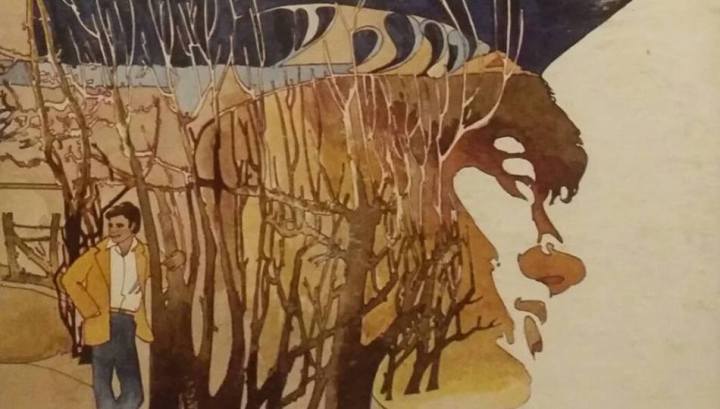
And inside, no hope to find some peace of mind
A drifter in a world of drifting men,
A hollow life of selfish goals,
No depth of soul
Not caring, only pleasure bent–Richard Milham
I’ve said many times–and at least twice on Orphan Songs–that early Christian music was more bent on evangelizing their old hippie friends than they were in expressing the struggles of faith. The results were often garbage.
However, I have never admitted that when I go record shopping and see a massive stack of Nashville gospel records, I feel a bit sick. My heart sinks and dips its toe in my stomach acid.
“But Jonni, why do you buy Christian records when so many of them are so fucking atrocious?”
Several reasons:
–I’m obsessed with The South and its religious torment. Neither modern country nor modern Christian music can provide me that.
–To a full-time amateur rock historian, the idea of early Christian psychedelic music is fascinating. Christianity’s embrace of the rock form, which had been at odds with the church for decades, signified a massive shift in the culture. The music Christianity once vilified suddenly became the primary vehicle for its propaganda.
–Because Christianity was new to rock ‘n’ roll, Christian artists had no idea how to make it. Culturally, most of them barely knew what rock ‘n’ roll was, so their naivete often lent an “outsider” quality to the music.
–The record covers. I mean, look at this beaut: dude is casually strolling through a Yellow-Submarine-ass watercolor forest. When he decides he’s gonna rest for a second and mack on that tree, the landscape to his left slowly dissipates into the white void–but not before turning into HIS OWN FACE.
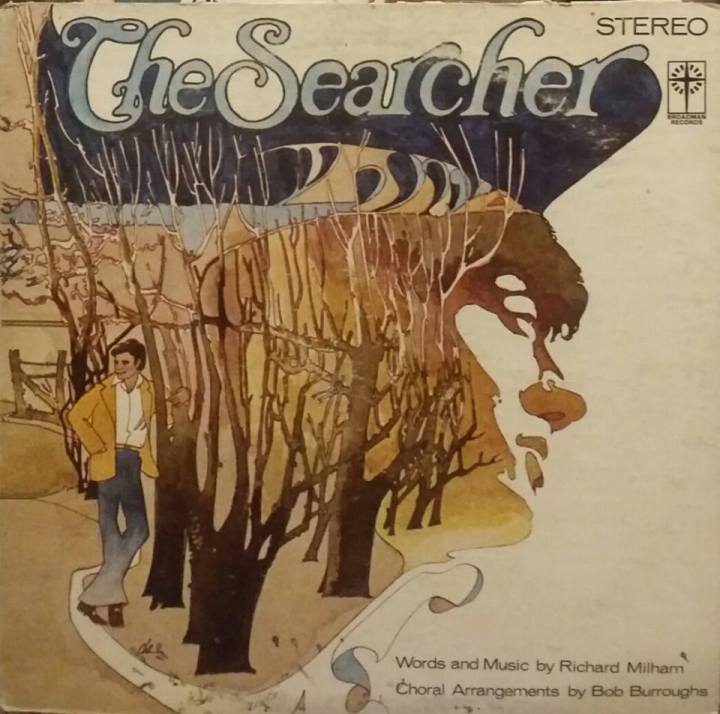
Dumbstruck by its psychedelic camp, I brought the record home and found out the lyrics were still 90% witnessing. One song, however, stood out like a beacon of psych-sadness in the bleak landscape I too often visit: a reverby, crooning number simply titled “Lonely.”
Listen to that pace, the effortless chord changes, the sleepy choir, the harmonica, the earnest hopelessness in Milham’s warm tenor.
On days like this, when I’m nursing a hangover and blasting the A/C, I put on records like this to remind myself why I collect.
Adopt the song HERE.
Branchwater-Survivin’

Of all the things in this world I’m thankful for, I’m most grateful that I was safe in Nashville while my friends back home had to cater to the turds who have converged into that giant shitstorm they call Hangout Fest. I find few things less appealing than pay 300 smackers to wait hours in stop-and-go traffic, stand in the Gulf Shores Death Sun, and watch my old favorite bands, while surrounded by the Todds and Ashleys who used to harass me for liking said bands.
Perhaps worse than attending Hangout Fest is working one of the many (seasonal) jobs Hangout Fest and the surrounding tourist traps industry have created. For all of you back home, bound by contract to pretend you like the dudebros and yasss queens whose yearly highlight is to attend Redneck Bonnaroo, I present the song of our homeland, written back when tourism was only a footnote in our lives:
This song, by Gulf Shores’ own Branchwater, has written a song for all of us in Alabama: Gentlemen. Bama ladies servin’ up moonlight treats. Squirrel hunters. Frog giggers. Barkin’ hound dogs.
They even express their love for the entire state by the revering both the Crimson Tide and “the Great War Eagle Cry.” That’s unity, folks.
In fact, their love of all Alabamians is so great that they let the worst singer in the county sing–twice–and boy, am I glad they did. This guest singer, backed by his very tight rhythm section, growls sometimes about love and regret, but mostly he’s just chasing ladies, “howlin’ at the moon,” and lamenting his drunken reproductive choices.
On days like today, I listen to Branchwater, I forget about Hangout Fest, and I actually miss home a little.
Adopt a 4 of the songs here.
Sunday Offering: “Jesus,” by the Young Stalneckers
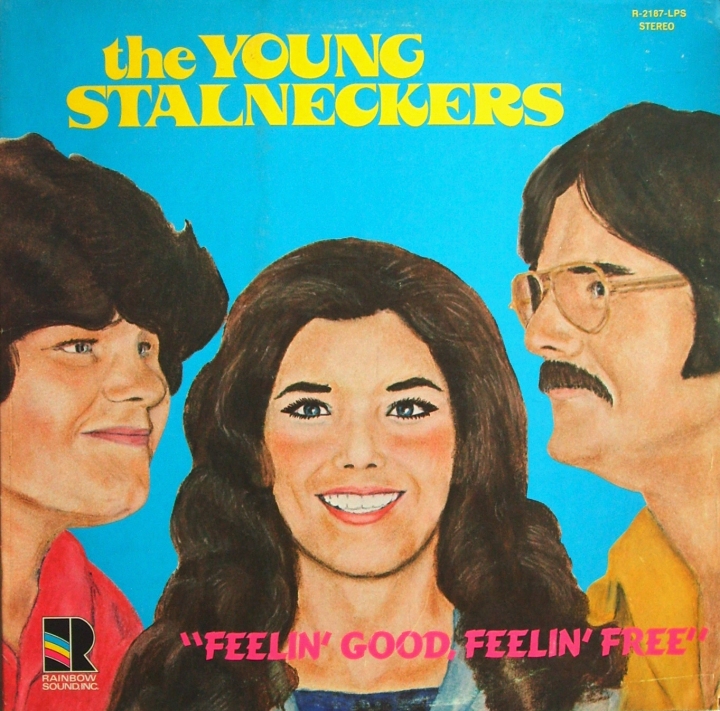
Jesus
He’s our Man
Jesus
If He can’t help us, nobody can
–The Young Stalneckers
Christian rock, with few exceptions, has never been a genre propelled by suspense or mystery.
If a band starts a song with “Are you lonely, looking for answers?” or “I was lost, and I needed someone to save me,” you probably shouldn’t expect a winding tale about the seeker’s journey through abuse, drugs, and Hare Krishna, finally resolving after a grand climax. No, it won’t take more than 30 seconds before you know exactly what the answer is and who saved them.
Hint: it’s Jesus. It’s always Jesus.
And The Young Stalneckers, known by some for their “bad” (see: “folky”) album art, are no exception. Mr. Stalnecker opens the aptly-titled song “Jesus” with the world’s challenge to faith: “Well, people say that Jesus is a thing of the past/ They say it’s just a fad, it just won’t last.”
I’ll let you guess what happens next.
Did you guess that crushing fuzz guitar was next, followed by an unhinged noise solo for the intrumental?
No. You probably guessed that he declared Jesus as his savior–which he also did.
Adopt two tracks from the album here.
“Sex, Speed, and See-You-Later-Alligator-Jive:” Illustrations from Goldstein’s 1969 Paperback The Poetry of Rock
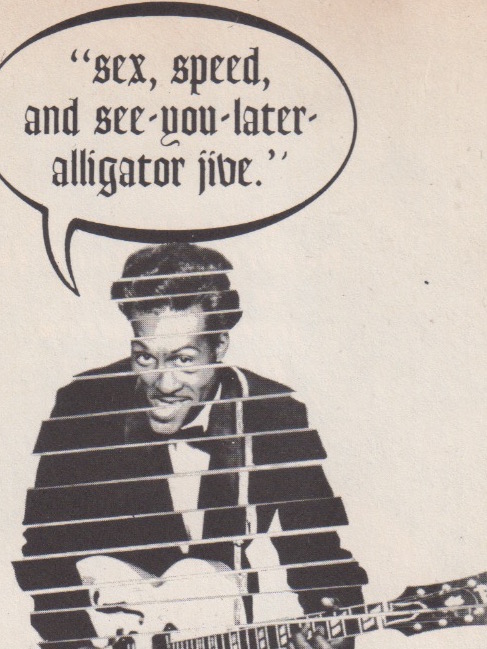
I have this thing with procrastination.
Once I get an idea, I have about a two-hour window to start the project. Otherwise, I’ll bother each of my friends at least twice a week with my latest great idea— until I actually write it down three months later.
To break the cycle, I’ve stayed home on a Saturday night—in lieu of attending my favorite karaoke bar [I do a kickass Celine Dion]— to scan in some pictures of my new favorite thing: the illustrations in Richard Goldstein’s 1969 paperback The Poetry of Rock.
The book itself seems enjoyable enough: one of The Village Voice’s most prominent writers musing on the literary merit of rock lyrics. His featured poets span a wide range of genres. There are legends— Chuck Berry, Johnny Cash, and Willie Dixon—and underground heroes: Phil Ochs, Robin Williamson (of the Incredible String Band), and The Fugs’ own Tuli Kupferberg, to name a few. Goldstein’s insights—if not profound—are at least colorful. Take for example the last two paragraphs of the introduction:
Do these lyrics really amount to art? Does Wordsworth speak to Donovan from the great beyond? Is John Lennon’s wordplay truly Joycean? Is Bob Dylan the Walt Whitman of the jukebox? In a sense, assertions like these are the worst enemy of liberated rock. They enslave it with an artificial heritage. The great vitality of the pop revolution has been its liberation from such encumbrances of form. Rock swings free, embracing chaos, and laughing at the notion that there could be anything more worth celebrating than the present.
Rock is, and always has been, the sacred squeal of now. It’s got a damned good beat. And you can dance to it.
The same perspective can also be used when trying to analyze the illustrations, made by some unnamed artist:
Was the artist influenced by dada? Why is Pete Townsend’s head in a pail? Is it too kitschy to put the heads of The Lovin’ Spoonful on actual spoons? If the illustrator is going for kitsch, then why are those circles containing The Supremes’ faces supposed to represent flowers? Is that abstract, or just inept?
In the rock ‘n’ roll universe, none of this truly matters. When overcome with the audio-visual onslaught of true rock, few people actually give a shit about some poncy, Pitchforkian thinkpiece.
Which is why I must curb my own profligate tendency to rant.
I now present the illustrations posthaste, in perpetuity: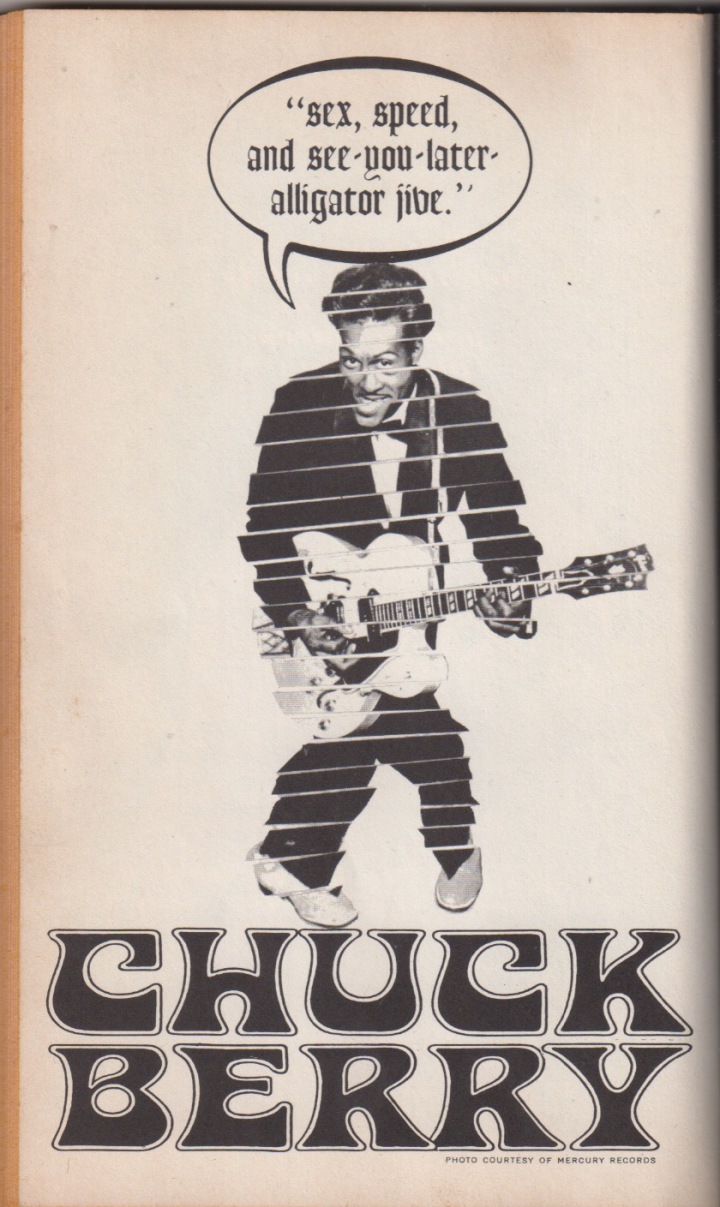
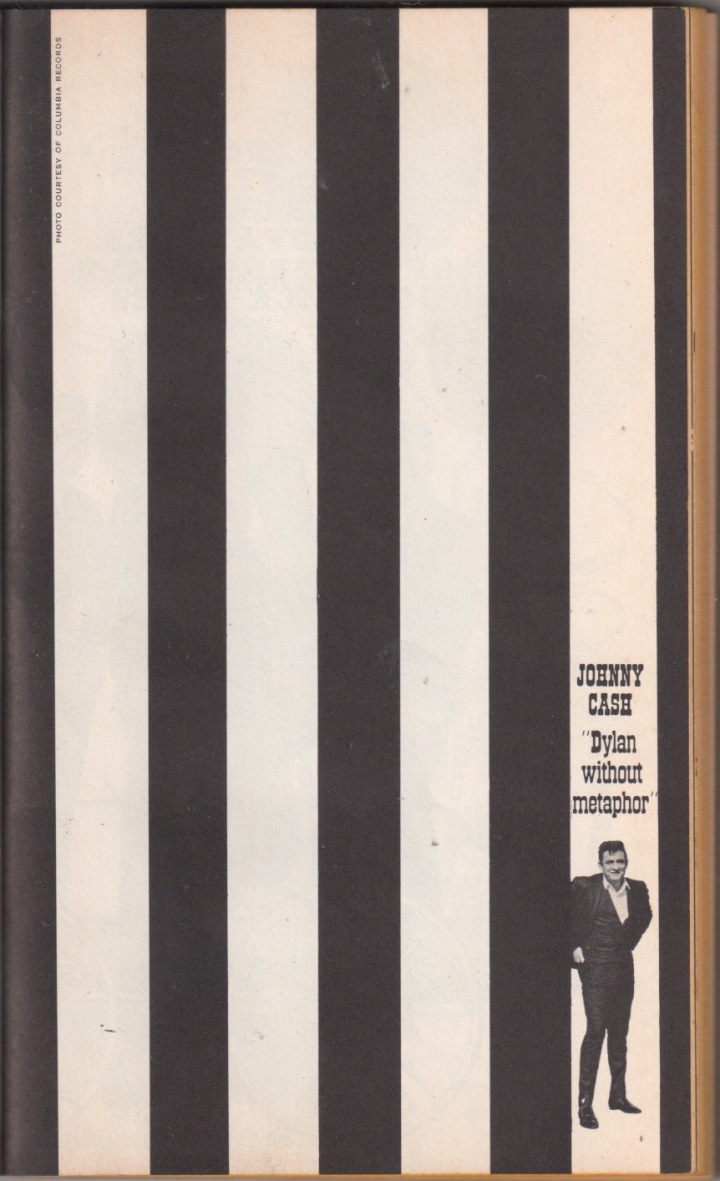
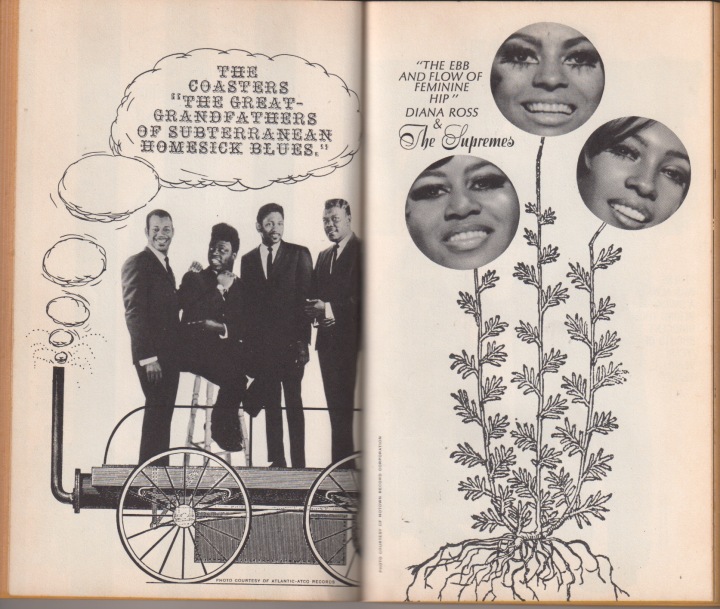
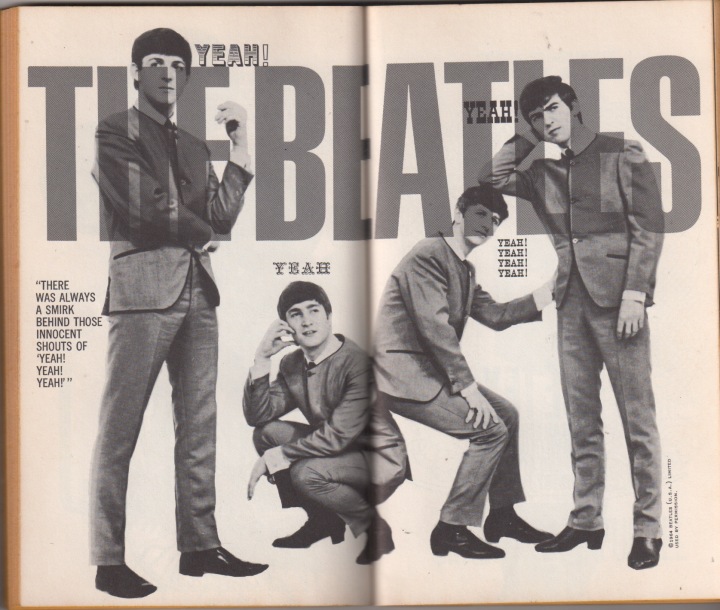
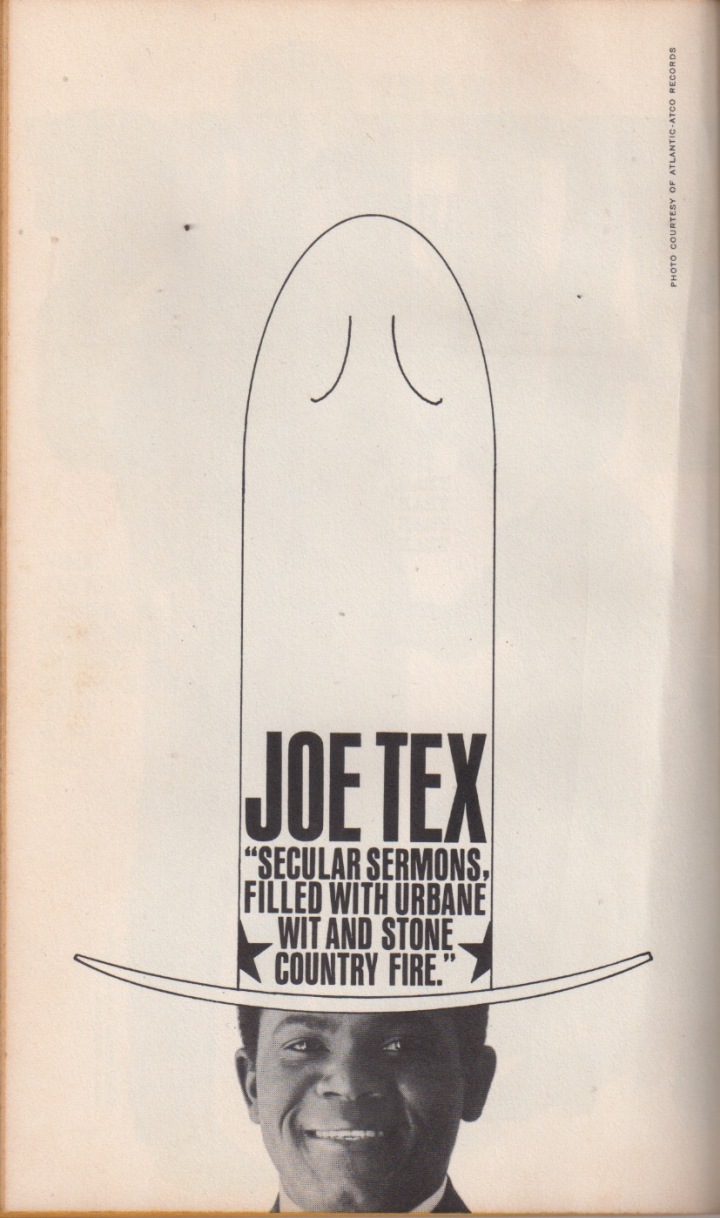
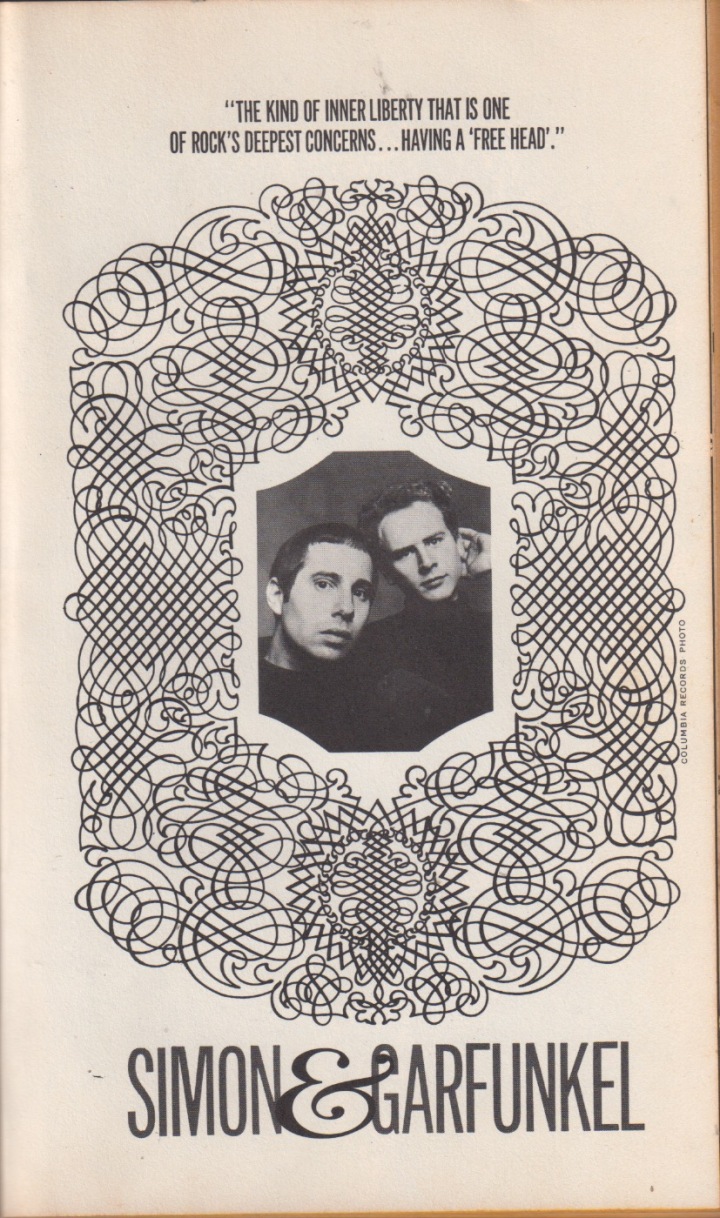
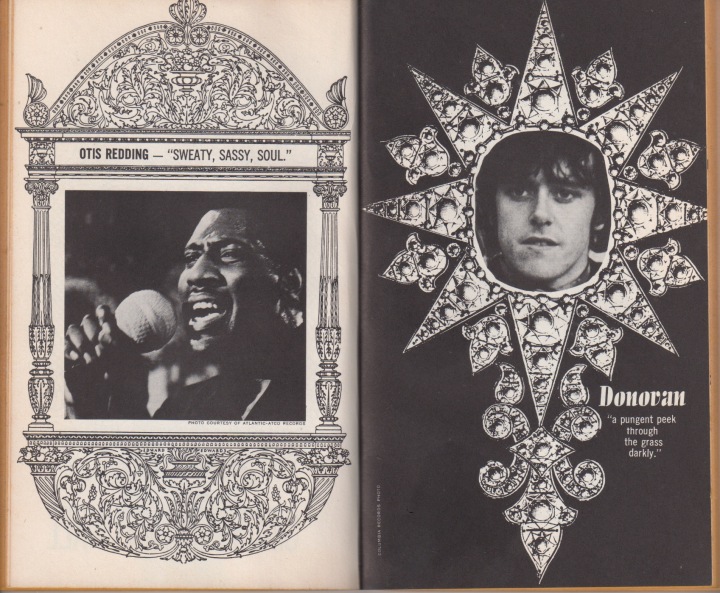
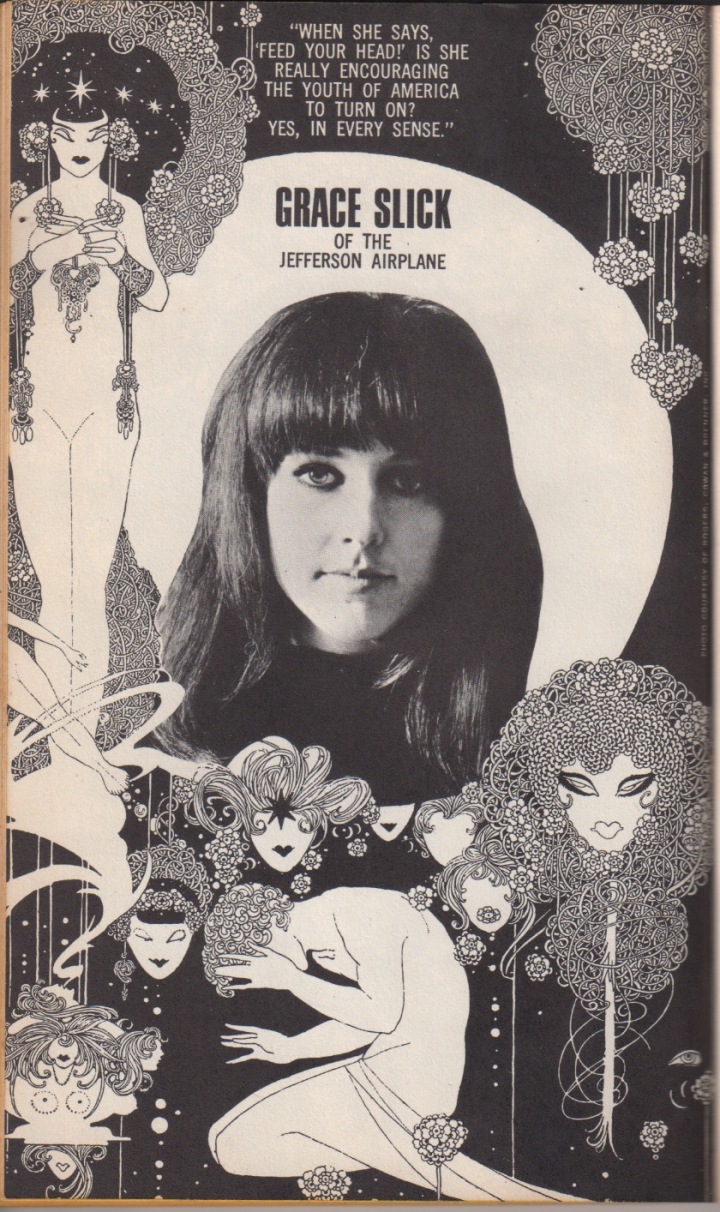
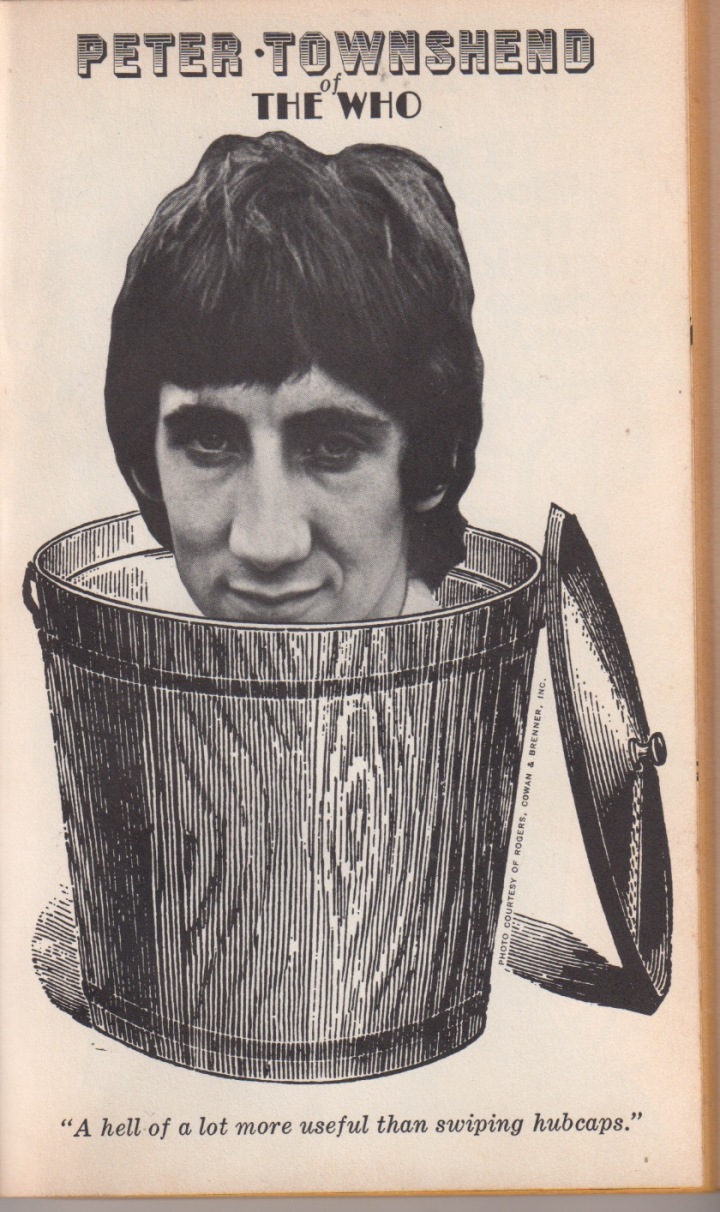
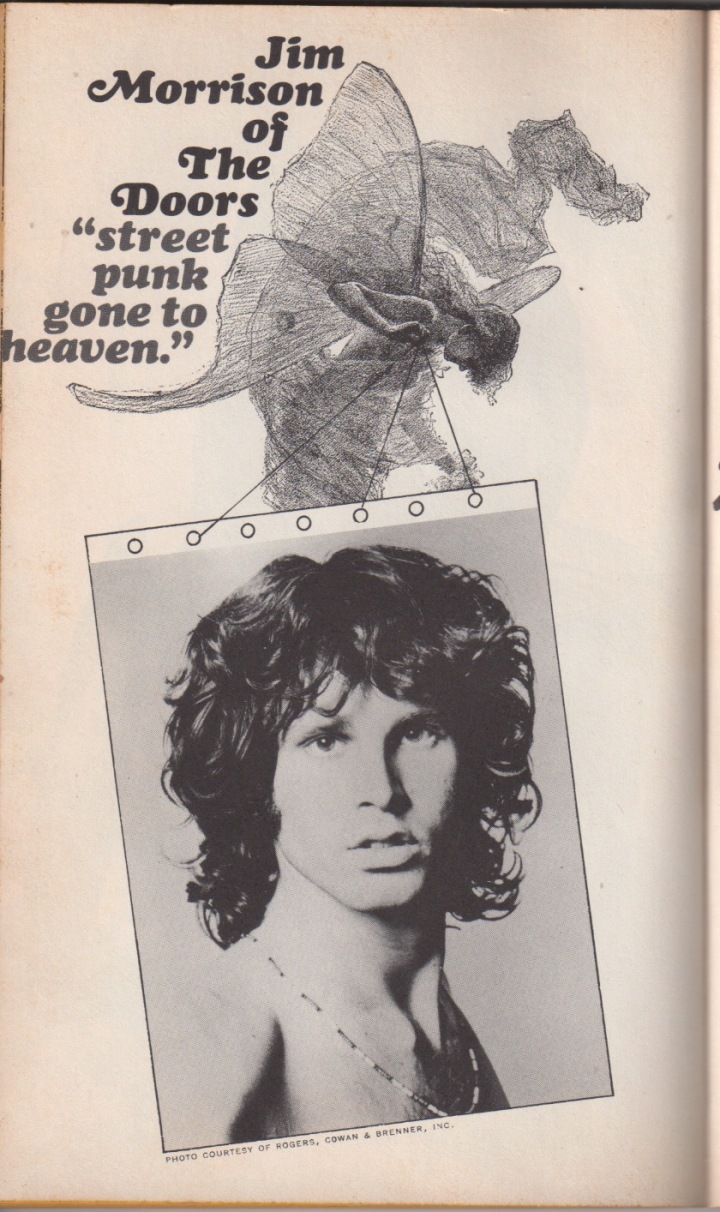
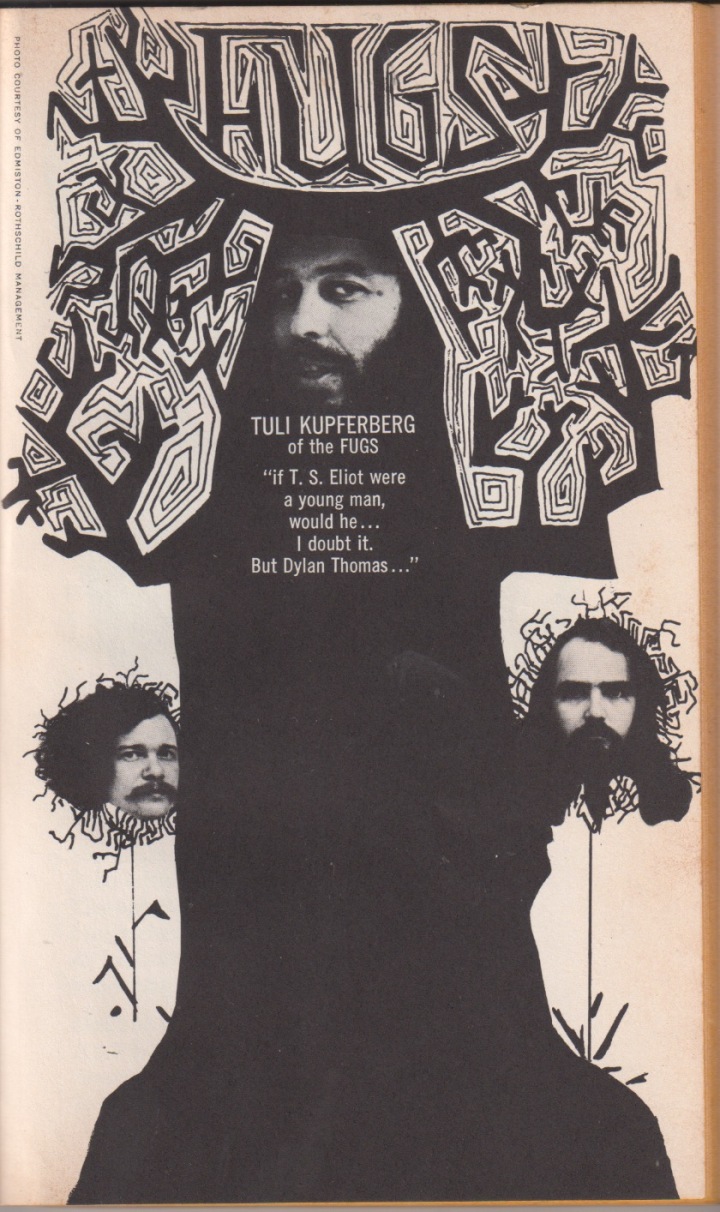
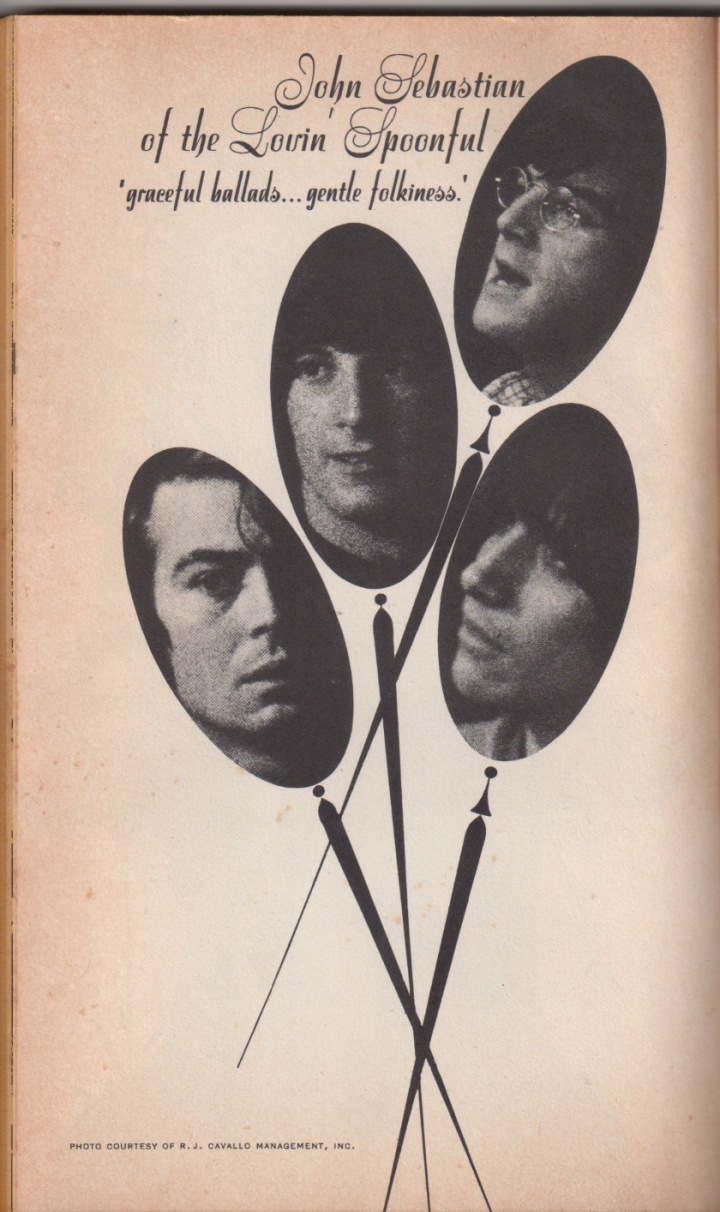
Munson- Driven to the Point of Abstraction

For at least the past half-century, we’ve heard countless warnings about how technology will affect our lives:
“In the future everybody will be world famous for fifteen minutes”– Warhol in the ’60s
“The Antichrist will plant microchips in our hands, duping Liberals into taking the Mark of the Beast”– Nearly Every Pastor in the ’90s
“Millennials can’t tear themselves away from their ipodphones to talk to each other.”– Your Grandma Last Thanksgiving
Whatever philosophical differences they may have, all these people–except maybe Andy, who was probably excited–have expressed a common anxiety:
They’re all afraid the Information Age will cause us to deny in ourselves the things that make us human and gorge on media until we lose our intellects, our relationships, our attention spans, and even our souls.
In 1984, professional guitarist Art Munson–who had already gained plenty of credentials as a session and touring guitarist–released his solo album”Driven to the Point of Abstraction”– yet another reminder of the perils of the modern age your grandma was so worried about.
The album opens with dissonant piano, radio static, stations fading in and out, and synth reminiscent of a 90’s cartoon villain. He sings in his snottiest tone, backed up by a double bass drum(?) in the chorus.
Like the above quoted, self-styled prophets, he expresses his own frustration with modernity:
“Televised, merchandised a package for the mass
Illustrated, decorated they sell you in a flash
Contemporized, sterilized and steal you with a song
Apathetic, antiseptic they know where you belong.”
But Munson doesn’t stay on that theme for too long.
The middle of the album dips into your more typical 80’s pop. He croons melodic, new wave numbers about love and loss: well-worn topics for the Yuppie Makeout genre.
He keeps the same vocal sneer throughout, but arranges the songs beautifully, the most touching being “I Know How to Reach Her.”
The premise is simple: while other men try to woo her with displays of wealth and confidence, he’s the only one who knows what she needs, and judging by his voice, he won’t tell you what that is:
“Your success won’t excite her
She’s got money, money to burn…
I meet her where nobody hears her
I crave every sound she makes.”
Is that touching or creepy? Depends on the couple, maybe?
The last song, “Oo-Dai-Koo-Koo-Dai,” is built on what sounds like an unstable washing machine. In it, Munson barks some odd instructions at his listener:
“Fingerpaint your face
Put a leopard in your hair
Take a hammer to the lock
Go dancing with a bear
Shower with a couch”
His final prophecy will no doubt be the layout of Katy Perry’s 2017 pinup calendar.
Where is Munson now? Selling royalty-free music online. Best of luck to him.
Adopt the full album HERE.
Danny Dalrymple, Who Hates Taxes Very Much.

Taxes, taxes, taxes,
Taxes by the heap,
Even on our hot dogs
They used to make with meat.
In the history of politically-charged folk music, so many topics have been tackled: lynches, drafts, wars (both just and unjust), slavery, slum lords, and even sexism. However, I venture to say that nobody has Danny Dalrymple’s perspective on taxes.
His complaints?
–A friend of his retired and skipped town because property taxes were too high.
–He has to eat more potatoes “because the price of meat.”
–They used to make hot dogs with meat. Not anymore, apparently.
–They’re weighing every meat.
–They’re taking the pork out of the pork and beans.
–The people’s pocketbooks are empty.
Noticing a common theme, I googled “New Jersey meat tax 1970s,” then expanded that search nationwide, with no satisfying results. Nonetheless, Mr. Dalrymple is furious.
He hates taxes. A lot. “When are they gonna say,” asks Danny, “‘We have enough to carry on; no more tax today?”
Bunny Bradley– Beast from the Middle East

In my hometown of Pensacola, FL, one can almost get bored with end times prophecy. After years of hearing zealots proclaiming that Jesus would return in 1988, that Gorbachev was the Anti-Christ, that soon credit cards would be implanted in our hands–In our hands, man— the good Southern kid grows accustomed to that kind of speech. The apocalypse is a part of life, like street preachers. Or abstinence classes. A Deep South boy like myself can become so accustomed to religious frenzy and apocalyptic speech that, when he first sees the Westboro Baptist Church–the “Got Hates Fags” people– he rolls his eyes and sighs deeply. “This shit again?”
Sometimes Armageddon becomes so commonplace that he barely notices it, and it’s reduced to that smell in your house that that only visiting friends can detect.
Pensacola’s Bunny Bradley, however, has decided to provide a fresh spin on our apocalyptic tradition by asking some vital questions:
–Did the book of Revelation predict Desert Storm?
–If so, is Saddam Hussein the Beast?
–Is his name really pronounced “Saw-dahm?”